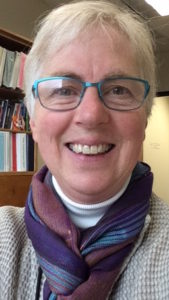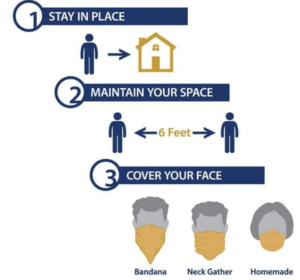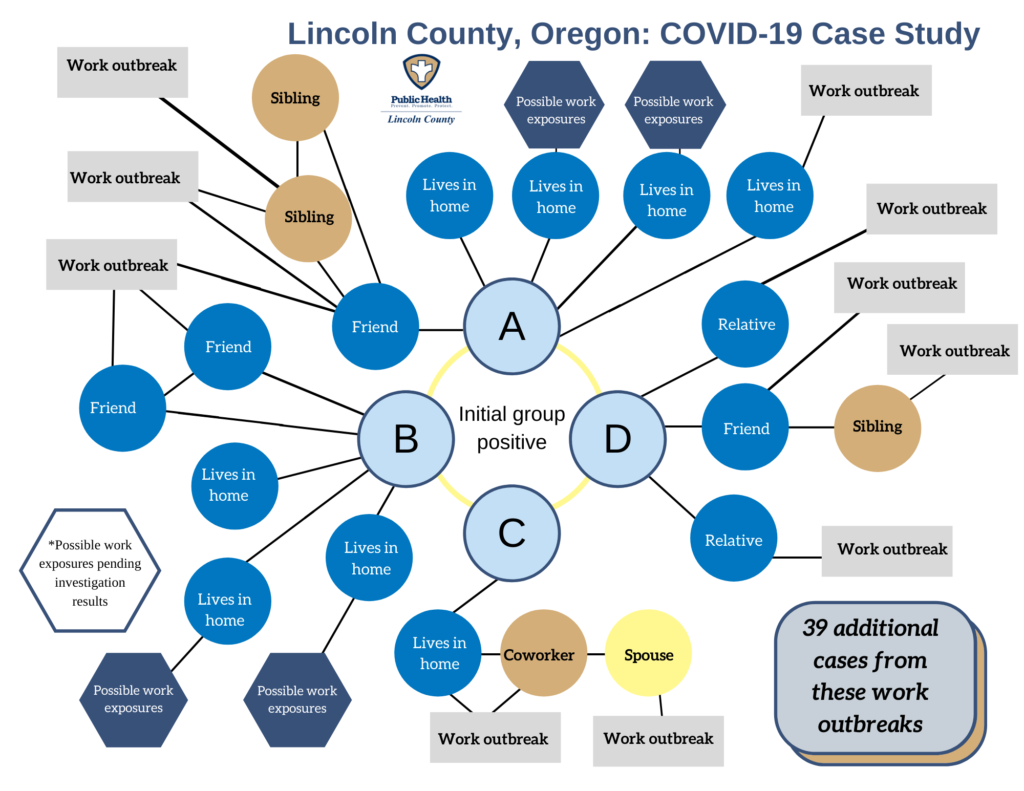
By QUINTON SMITH/YachatsNews.com
The head of Lincoln County’s health department is sounding a warning about coronavirus testing, saying that supplies are dwindling in Oregon and test results are taking too long to help stop the spread of the illness.
Rebecca Austen, director of Lincoln County Public Health, told the Yachats City Council on Wednesday night that testing is headed “in a very bad direction for us.”
Test supplies are being diverted to help with massive outbreaks in Florida, Texas, Arizona and California, she said, making their availability in Oregon both harder to get and more expensive.

Austen spoke with alarm Monday during a briefing with county commissioners, and then again Wednesday during a joint meeting with commissioners and the Yachats council.
“The supply chain is national,” Austen said. “We don’t have much control over it in Lincoln County or Oregon.”
On Thursday, the Oregon Health Authority reported 437 new cases statewide, the highest since the onset of the pandemic. There were three new cases in Lincoln County, making just five new cases for the week and 364 total since March.
The agency attributed the rise in cases is attributed to the spread of COVID-19 from social gatherings and sporadic spread. Worksite outbreaks and long term care facility outbreaks also are contributing cases to the daily count.
Austen told YachatsNews on Thursday that the county is especially worried – and upset – that it still does not have results of 190 COVID-19 tests of residents in five Lincoln County long-term care facilities taken 12 days ago. The turnaround should be 2-4 days to effectively contain any outbreak.
A Quest laboratory in Salem has the tests, Austen said.
“We’ve been calling every day and they say ‘Yes, you’re in the backlog’.
“It’s very disconcerting,” she said of the nursing home tests. “It’s critical for our work to protect these very vulnerable people.”

One assisted living center in Lincoln City has had an outbreak among employees. But the biggest outbreak has been at Avamere Rehabilitation in Newport, where six of 33 elderly residents have died this month and 16 employees have tested positive for COVID-19.
Avamere’s parent company is reporting all COVID-19 cases in all its properties on its website – an unusual procedure for the industry. As of Thursday, Avamere in Newport said it had six active cases among its residents and that 13 had recovered, and that a single staff member was still quarantining, and that 15 had recovered.
Samaritan diversifying its suppliers
Samaritan Health Systems, which has done more than half of the 5,700 tests in the county, is working to diversify its testing suppliers and laboratories so that if one has issues, there are others to keep tests moving.
Samaritan, which is based in Corvallis, operates five hospitals in Lincoln, Benton and Linn counties, and a variety of clinics, including ones in Waldport and Depoe Bay.

It has moved away from using Legacy Laboratories in Portland and now almost exclusively uses Willamette Valley Toxicology in Corvallis, said Jane Russell, chief operating officer at Samaritan Pacific Communities Hospital in Newport, who oversees the system’s laboratory operations. Willamette Valley currently has a test turnaround time of 4-5 days because it is still ramping up staffing, Russell said, but should have that down to two days by August.
“We don’t have a limit on the number of tests we send to Willamette Valley,” said Russell. Samaritan has conducted 515 tests so far this month in Lincoln County and did 1,310 in June.
Coronavirus tests for more critical Samaritan patients are sent to the Oregon Health Authority, she said. Samaritan also has the capability of doing 100 tests a week at its hospital in Albany.
Samaritan is also planning to acquire its own coronavirus testing equipment, which is in high demand, and hopes to have it operating in Corvallis early next year, Russell said.
“The message that is very important is that there will be issues with testing availability … but we’re doing everything we can to diversify our providers so if there’s an issue we can move quickly to other services,” Russell said.
Some new tests inaccurate
Austen also said this week that some new testing methods developed as stop-gap measures or to increase availability of tests are less reliable, resulting in the need for re-tests.
“We do seem to be going backwards,” Austen told commissioners. “We have fewer and fewer resources at our fingertips.
“It seems that everything that can go wrong with testing has gone wrong … and continues to do so.”

For a rural area, Lincoln County has had a large number of COVID-19 cases — the majority of which can be traced back to a massive outbreak in early June at Pacific Seafood plants in Newport. Those cases have mostly stayed in the Newport area, but spread from seafood workers through family and friend contacts into other businesses and neighborhoods.
Without a quick turnaround on COVID-19 tests, Austen said, what people can control are three things: wearing face coverings, staying six feet apart from non-family members, and “wash, wash, wash your hands.”
But Austen said those things the public can do to protect themselves need to work in concert with coronavirus testing by medical providers and contact tracing of those who are COVID-19 positive by county health workers.
“Without tests we can’t trace contacts,” Austen said. “It all has to fit together …”
In an interview with YachatsNews on Thursday, Austen was also critical of the federal response to the coronavirus pandemic. It’s a common theme by health officials across the country of the Trump Administration’s response to the pandemic.
“There’s no system,” she said. “The federal response to this has failed us. We’re totally left on our own.”

Illustrating the spread
Lincoln County has had seven COVID-19 related deaths and 364 positive cases as of Thursday. But unlike cases spiking in some Oregon counties, Lincoln County has had only five new cases reported so far this week.
On Monday, Nicole Fields, health department deputy director, reiterated warnings that Gov. Kate Brown and state health officials stated only hours earlier – that Oregon’s increasing case numbers are being led by people under the age of 40 who are not heeding warnings about social distancing.
Brown instituted a statewide order effective Wednesday requiring that people now wear masks outdoors when they cannot be six feet apart from other people.

Many of these new Oregon cases are coming from younger people attending social events and not from a known, coronavirus source “so we can’t tell where it started,” Fields said.
“This is quite a big deal,” she said. “The state is going the wrong direction.”
To illustrate how easily and quickly a COVID-positive person can infect others, county officials released a graphic showing how as many as 62 actual cases started with four co-workers contracting the illness. The coronavirus spread to family, friends, other co-workers and people they lived with, eventually leading to outbreaks in 10-14 other businesses.
“This spreads really, really easily,” said Fields. “It can go from a few people to a catastrophic spread. So many peoples’ lives and jobs are linked together; this is a small community.”



